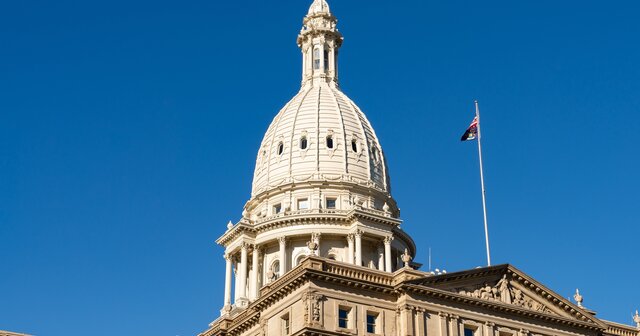

Elon Musk’s DOGE team has been pausing and canceling billions of dollars in federal grants. Special interests have noticed, giving rise to hundreds of news stories complaining about the cuts. But these complainers are missing something important: The deeply leveraged federal government is not the only place to ask for money. If these interests are truly serving the public, they should ask states for help.
In debates about political spending, states are often overlooked and underappreciated. But it is the states who formed the federal government, and it’s from the states that the federal government draws its funding and authority. States have the power to accomplish their own policy priorities and the authority to tax people to pay for their lawmakers’ priorities. If the work of those facing DOGE cuts is so essential, their case to state voters and lawmakers should speak for itself.
Under the Trump administration, the federal government has decided to stop lending money for residential solar panels and paused some funding to exterminate the sea lamprey in the Great Lakes. The banks and fisheries that received money can ask state policymakers to fund their efforts. After all, much of what the federal government is cutting is cycled through the states already. Federal transfers to state governments account for a third of state spending.
Federal funding to states does one of two things: It motivates the states to do something that they otherwise wouldn’t do, or it helps them to do something they would do anyway. Both of these things are bad. States should either do the things that are popular with their voters, using state tax dollars, or they shouldn’t do them at all. Federal money either drives unpopular policies or removes the political consequences for state politicians who would otherwise have to choose how to fund popular policy priorities.
Special interests likely know of this option, but they continue to lament federal cuts. Lobbying all 50 states is hard work. Lobbying the federal government, while not necessarily easy, gives special interests access to a massive, unified and (as the DOGE has revealed) frequently unguarded national purse. Special interests can lobby one government that controls $6.9 trillion in spending or 50 states that control a combined $4.3 trillion in spending.
What’s easier for special interests, however, is not what is best for the country. State governments balance their budgets, and the federal government does not. Federal lawmakers keep taking taxpayers further into debt. Uncle Sam is $28 trillion in debt, more than $200,000 per household. This is a massive debt that is growing beyond our means to pay it down.
Federal debt is a preventable catastrophe waiting to happen. Congress needs to spend less. This is a problem that state governments do not face.
State governments can afford to replace eliminated federal grants. While their combined purse is smaller than the federal government’s, $4.3 trillion in spending is a lot. And states can fund these programs without bankrupting the country. It’s only a matter of whether the things special interests want are popular and benefit the public.
It’s understandable that spending interests want to keep their federal money. They have already convinced Congress to contribute and would prefer to keep those payments going.
If spending interests can’t demonstrate their value to state lawmakers, however, then the federal government shouldn’t have given them money to begin with. It would be better for everyone if special interests turned their focus away from Washington and toward the states that live within their means. This would lead to more competition, better prioritization of spending, and more accountable lawmakers.
Permission to reprint this blog post in whole or in part is hereby granted, provided that the author (or authors) and the Mackinac Center for Public Policy are properly cited.
Get insightful commentary and the most reliable research on Michigan issues sent straight to your inbox.

The Mackinac Center for Public Policy is a nonprofit research and educational institute that advances the principles of free markets and limited government. Through our research and education programs, we challenge government overreach and advocate for a free-market approach to public policy that frees people to realize their potential and dreams.
Please consider contributing to our work to advance a freer and more prosperous state.

Donate | About | Blog | Pressroom | Publications | Careers | Site Map | Email Signup | Contact